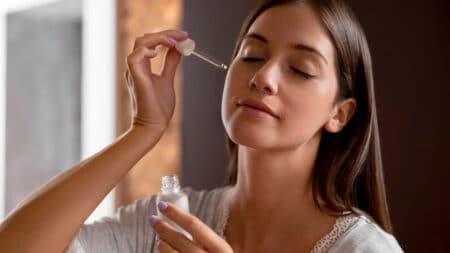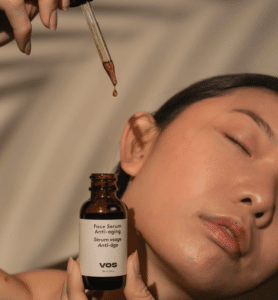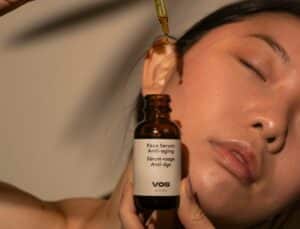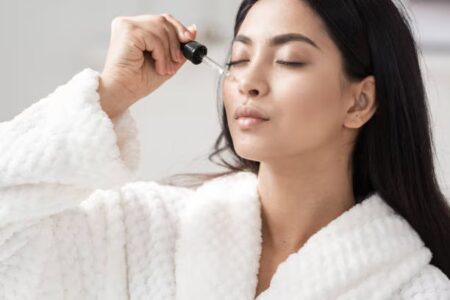In today’s skincare world, anti-aging serums have become a must-have for anyone looking to maintain youthful, radiant skin. If you’re looking to reduce fine lines, wrinkles, and other signs of aging, incorporating an anti-aging serum into your skincare routine can make all the difference. But why are anti-aging serums so essential, and how do they work? In this article, we will explore the importance of these serums, their key ingredients, and how to properly integrate them into your daily skincare regimen.
What Is an Anti-Aging Serum?
An anti-aging serum is a lightweight, fast-absorbing skincare product designed to address specific skin concerns, especially those related to aging. These serums are formulated with concentrated ingredients that penetrate deep into the skin to target fine lines, wrinkles, uneven skin tone, and loss of elasticity. Unlike regular moisturizers, serums are more potent and often contain active ingredients that provide visible results over time.
While a moisturizer hydrates the skin’s surface, anti-aging serums work at a deeper level to rejuvenate and repair the skin. This makes them an essential part of any skincare routine aimed at preventing or reducing the visible signs of aging.
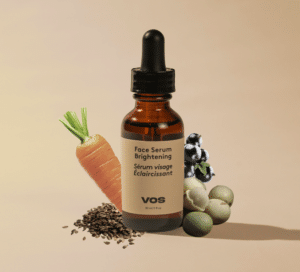
Why Are Anti-Aging Serums Essential for Your Skin?
As we age, our skin undergoes several changes. The production of collagen and elastin—two vital proteins that help keep skin firm and youthful—slows down, leading to sagging, wrinkles, and fine lines. Additionally, factors like sun exposure, environmental pollutants, and stress can accelerate the aging process.
Here are some reasons why anti-aging serums should be a key element in your skincare routine:
1. They Boost Collagen Production
Collagen is a protein responsible for keeping the skin firm, smooth, and plump. As we age, collagen production declines, leading to the appearance of wrinkles and sagging skin. Anti-aging serums often contain ingredients like vitamin C, retinoids, and peptides that stimulate collagen production. By incorporating these serums into your skincare routine, you can promote a youthful appearance and prevent premature aging.
2. Deep Penetration for Targeted Action
Unlike heavier moisturizers, serums have a thinner consistency that allows them to penetrate the skin more effectively. This makes them ideal for addressing specific skin concerns like wrinkles, pigmentation, and texture. Anti-aging serums often contain active ingredients like hyaluronic acid and antioxidants that reach the deeper layers of your skin, providing more targeted treatment.
3. They Reduce the Appearance of Fine Lines and Wrinkles
One of the most significant benefits of anti-aging serums is their ability to smooth fine lines and wrinkles. Active ingredients such as retinol and peptides can help reduce the depth of wrinkles by boosting cell turnover and encouraging the production of new skin cells. Over time, these ingredients can lead to visibly smoother and firmer skin, which is essential for a youthful complexion.
4. Help Even Out Skin Tone
Age spots, hyperpigmentation, and sun damage are common skin issues that arise with aging. Anti-aging serums containing ingredients like vitamin C and niacinamide can help brighten and even out skin tone. These ingredients inhibit melanin production, which helps lighten dark spots and promote a more uniform complexion.
5. Hydrate and Restore Skin Elasticity
Aging skin tends to lose moisture, leading to dryness, dullness, and a loss of elasticity. Many anti-aging serums contain humectants like hyaluronic acid, which draw moisture into the skin and help retain it. This hydration not only makes the skin look plumper and healthier but also improves its elasticity, making it more resistant to the formation of new wrinkles and fine lines.
6. Antioxidant Protection
Environmental factors like pollution and UV rays can accelerate skin aging by causing oxidative stress. Anti-aging serums often contain antioxidants such as vitamin E, green tea extract, and resveratrol, which help neutralize free radicals. By providing this antioxidant protection, serums can minimize the damage caused by external aggressors, keeping your skin looking youthful and vibrant.
Key Ingredients to Look for in Anti-Aging Serums
To get the most out of your anti-aging serum, it’s important to choose one that contains the right ingredients for your skin type and concerns. Here are some of the most effective ingredients to look for in an anti-aging serum:
1. Retinol (Vitamin A)
Retinol is one of the most well-known anti-aging ingredients. It accelerates cell turnover, unclogs pores, and stimulates collagen production, which helps reduce fine lines and wrinkles. It is particularly effective for people with mature skin or those looking to target the early signs of aging.
2. Vitamin C
Vitamin C is a powerful antioxidant that helps brighten the skin and reduce the appearance of dark spots. It also promotes collagen synthesis, which helps the skin maintain its firmness and elasticity. Vitamin C serums are ideal for improving skin tone and texture while protecting the skin from environmental damage.
3. Hyaluronic Acid
Hyaluronic acid is a humectant that draws moisture into the skin, helping to keep it hydrated and plump. As the skin ages, it loses moisture, leading to dryness and the formation of fine lines. Hyaluronic acid helps restore this lost moisture, keeping the skin looking smooth and youthful.
4. Peptides
Peptides are short chains of amino acids that help rebuild damaged skin and stimulate collagen production. By incorporating peptides into your skincare routine, you can improve skin texture, reduce the appearance of wrinkles, and maintain a youthful glow.
5. Niacinamide (Vitamin B3)
Niacinamide is an excellent ingredient for improving skin elasticity and reducing the appearance of fine lines. It also helps brighten the complexion and reduce redness or irritation. Niacinamide is ideal for those with sensitive skin who want the benefits of anti-aging without irritation.
6. Antioxidants (Vitamin E, Green Tea Extract, Resveratrol)
Antioxidants protect the skin from oxidative stress caused by free radicals, which are generated by environmental factors like pollution and UV exposure. These antioxidants help prevent premature aging and support the skin’s ability to repair itself.
How to Incorporate Anti-Aging Serums into Your Skincare Routine
Now that you know why anti-aging serums are essential, it’s time to learn how to incorporate them into your skincare routine. Here’s a step-by-step guide:
- Cleanse Your Skin First
Before applying any anti-aging serum, it’s crucial to cleanse your skin thoroughly. Use a gentle cleanser that suits your skin type to remove dirt, oil, and makeup. This will allow the serum to penetrate your skin more effectively.
- Apply the Serum
After cleansing, apply a few drops of your chosen anti-aging serum to your face and neck. Use your fingertips to gently massage it into your skin, focusing on areas where fine lines and wrinkles are most prominent.
- Follow with a Moisturizer
Once the serum has absorbed, apply a moisturizer to lock in hydration. The serum will have worked to target deeper skin layers, and the moisturizer will help keep your skin hydrated on the surface, preventing any moisture loss.
- Use Sunscreen During the Day
Many anti-aging ingredients, especially retinol, can make your skin more sensitive to the sun. Always finish your skincare routine with sunscreen to protect your skin from harmful UV rays, which can accelerate the aging process.
Conclusion
Anti-aging serums are an essential part of any skincare routine aimed at combating the signs of aging. These concentrated formulas can help boost collagen production, reduce fine lines and wrinkles, even out skin tone, and provide essential hydration. By incorporating the right anti-aging serum into your daily regimen, you can keep your skin looking youthful, vibrant, and healthy for years to come.
Whether you’re looking to reduce wrinkles, brighten your complexion, or protect your skin from environmental stress, anti-aging serums can address your unique skincare needs. Remember to choose the right serum for your skin type and concerns, and don’t forget to incorporate it into a comprehensive skincare routine for the best results.



